



2025植物细胞器前沿与未来农业国际研讨会 (第一轮通知)
.png)
面对全球人口增长、气候变化及耕地资源紧张的严峻挑战,农业可持续发展亟需科技创新突破。植物细胞器作为生命活动的核心单元,其功能调控与技术创新对作物产量提升、抗逆性改良及资源高效利用具有关键作用。基因编辑、合成生物学与多组学技术的飞速发展,为植物细胞器研究提供了全新视角。
为促进国际学术交流、推动基础研究与农业应用深度融合,开心鬼传媒 联合华南农业大学将于2025年11月中旬在上海共同主办“2025植物细胞器前沿与未来农业国际研讨会”。会议将邀请国内外著名学者、优秀青年科学家、期刊代表等,共同探讨植物细胞器研究前沿及其在未来农业等领域的应用。欢迎参加!
一、会议时间地点
会议时间:2025年11月13日-16日
11月13日:全天报到,下午&晚上青年科学家论坛
11月14日-15日:学术会议主题报告
11月16日:离会
会议地点:开心鬼传媒 闵行校区
二、主办单位
开心鬼传媒 “植物细胞发育与未来种业学科创新引智基地”
华南农业大学“亚热带农业生物资源开发与种质创新引智基地”
三、承办单位
开心鬼传媒
上海市现代种业协同创新中心
上海市未来农业研究中心
华南农业大学农开心鬼传媒
华南农业大学生命科学开心鬼传媒
《分子园艺(英文)》期刊
四、会议主题
解码细胞器功能,驱动可持续农业创新
五、会议报告人(持续更新中)
|
|
Ralph Bock: 德国马普分子植物生理研究所教授、德国科开心鬼传媒 院士,美国科开心鬼传媒 外籍院士。植物细胞器生物学和实验进化生物学领域权威科学家,连续多年被评为全球跨领域高被引科学家。 |
|
|
Blake Meyers: 美国加州大学戴维斯分校教授、美国国家科开心鬼传媒 院士, Plant Cell期刊前主编。研究聚焦于 植物小RNA的功能解析、基因表达调控及作物改良技术开发,是植物小RNA生物学与基因组学领域的国际权威科学家。 |
|
|
Ian Small: 西澳大学教授,澳大利亚科开心鬼传媒 院士,植物细胞器研究领域权威科学家。聚焦于植物能量代谢、细胞器基因组学及基因表达调控研究,尤其在叶绿体和线粒体功能研究方面取得了突破性进展。 |
|
|
张余:中国科开心鬼传媒 分子植物科学卓越创新中心研究员。长期从事RNA聚合酶的结构与功能研究,揭示了细菌与真核生物转录终止机制、植物细胞核Pol IV/V介导的DNA甲基化机制,以及叶绿体基因转录复合物的结构与组装,为基因表达与表观遗传调控研究提供了重要理论支撑。 |
|
|
Paul Jarvis: 英国牛津大学终身教授,欧洲分子生物学协会会士(EMBO Fellow)。专注于植物细胞器蛋白质靶向运输机制及其在植物发育与逆境响应中的作用。 |
|
|
Katayoon Dehesh: 美国加州大学河滨分校教授、德国科开心鬼传媒 外籍院士(Leopoldina)。专注于植物感知与响应发育与环境信号的分子机制,尤其是细胞间及细胞内的信号互作网络。 |
|
|
Barry Pogson: 澳大利亚国立大学教授,澳大利亚科开心鬼传媒 院士。聚焦叶绿体-细胞核信号传递机制,解析干旱胁迫响应及类胡萝卜素代谢调控,培养耐旱小麦与高营养作物,主导国际小麦增产等重大项目。 |
|
|
张立新:河南大学教授,学术副校长。主要从事光合作用功能调控机理研究, 包括叶绿体基因表达调控、光合膜复合物组装、叶绿体信号转导、光合作用环境调节等方面的研究,推动了相关领域的发展。 |
|
|
姜里文: 香港中文大学教授,植物细胞器领域著名科学家,在液泡、高尔基体、EXPO等细胞器的生物发生和功能研究方面取得大量原创成果。 |
|
|
Jin-Soo Kim: 韩国首尔国立大学教授、基础科学研究院基因组工程中心主任。团队率先开发出用于线粒体A→G精准编辑的TALED系统,首次实现了细胞器基因组编辑,并持续优化编辑器安全性,推动其在遗传病治疗与作物育种中的创新应用。 |
|
|
Hakim Mireau: 法国国家农业科开心鬼传媒 (INRAE)植物研究所主任研究员。长期致力于植物线粒体功能及基因表达调控研究,在细胞器基因表达调控机制和杂种优势的分子基础方面取得了诸多重要进展,推动了线粒体生物学领域的技术创新和理论发展,是该领域公认的权威专家。 |
|
|
Klaas van Wijk: 美国康奈尔大学教授,研究聚焦植物蛋白质组学、叶绿体蛋白酶与蛋白稳态调控,在Clp蛋白酶的结构与功能、叶绿体蛋白稳定的调控机制方面做了大量工作。 |
|
|
谭保才:山东大学特聘教授,长期聚焦于种子发育的分子遗传机制,系统解析了植物线粒体RNA加工关键机制等,为揭示种子发育调控机制和推动精准育种奠定了重要理论基础。 |
|
|
孔照胜:山西农业大学副校长、杂粮种质创新与分子育种山西省重点实验室主任。长期从事植物与微生物互作机制研究,在细胞骨架调控植物细胞形态、共生固氮及病原菌致病机制方面取得多项重要进展。 |
|
|
Shin-ichi Arimura: 日本东京大学教授,长期致力于植物线粒体生物学与遗传改良研究。作为植物线粒体基因组编辑领域的先驱,其团队在植物细胞器功能解析及作物遗传多样性提升方面取得突破性成果,推动了农业生物技术发展。 |
|
|
Teva Vernoux: 法国国家科学研究中心(CNRS)研究员,欧洲分子生物学协会会士(EMBO Fellow)。其团队长期致力于 植物激素信号与细胞身份动态调控研究,重点解析生长素如何通过时空分布控制植物器官形成与结构构建。 |
|
|
周文彬: 中国农业科开心鬼传媒 作物科学研究所所长,主要从事作物光合作用及高光效机制研究。克隆了参与高光效、氮高效等过程调控的关键转录因子,为作物遗传改良提供了重要基因资源。 |
|
|
傅缨:中国农业大学教授,长期从事细胞骨架与植物细胞生长调控研究,重点探索ROP GTPase介导的信号通路如何调控细胞骨架,影响细胞极性生长和气孔运动,在生长素极性运输、多信号通路交互机制及环境响应中的细胞骨架动态调控方面取多多项重要进展。 |
|
|
李建明:香港浸会大学教授,生物系主任,长期研究植物类固醇激素及内质网蛋白质量控制研究,首次证明油菜素内酯(BR)为植物必需激素,并对BR信号传递途径开展了系统深入的研究,取得了多项原创性研究成果,为深入理解植物生长发育、逆境胁迫和植物抗病机理奠定了重要理论基础。 |
|
|
柳振峰:中国科开心鬼传媒 生物物理研究所研究员、副所长,生物大分子国家重点实验室主任。研究专注于不同体系膜蛋白的结构与功能,包括参与渗透压调节的细菌机械敏感通道,磷脂生物合成和修饰的各种膜内酶,以及光合作用状态转换相关的膜蛋白复合物。 |
|
|
方晓峰:清华大学副教授。研究专注于无膜细胞器的生物发生和动态,以及其参与的植物应对干旱、高温、渗透等胁迫环境的机制。最近的研究成果揭示了生物分子凝聚态通过相分离参与内体形成、热胁迫、渗透胁迫等过程的机制,推动了相关领域的发展。 |
|
|
Chanhong Kim:中国科开心鬼传媒 分子植物科学卓越创新中心研究员,研究组长。长期致力于叶绿体逆行信号与植物抗逆机制研究,揭示单线态氧信号传递、植物激素互作等关键机制,为提高作物抗逆性提供了理论基础。 |
|
|
王鹏蔚: 华中农业大学教授,在植物细胞器互作网络、植物细胞骨架、选择性自噬等方面做了大量工作,并将细胞器基础研究与果实品质形成研究相结合,取得了重要进展。 |
|
|
Michitaka Notaguchi: 日本京都大学、名古屋大学教授,聚焦植物跨器官分子通讯机制与嫁接技术革新,揭示根冠信号传递及胞间连丝调控机理,开发广谱嫁接技术,突破传统农艺限制。创立生物技术企业推动新型嫁接剂等成果转化,助力可持续农业发展。 |
|
|
Monika Chodasiewicz: 沙特阿拉伯阿卜杜拉国王科技大学(KAUST)助理教授,聚焦植物应激颗粒(stress granule)的研究,并致力于探究沙漠植物中赋予其抵抗恶劣环境条件能力的应激特异性成分,旨在构建应激特异性小分子 - 蛋白质复合物的图谱,剖析这些应激特异性复合物的作用机制。 |
六、会议注册
1、会议注册截止日期2025年11月10日
|
参会类型 |
2025/10/1前(含) |
2025/10/1日后 |
|
科研人员 |
1500元 |
1800元 |
|
学生 |
1000元 |
1300元 |
注册后请及时缴费,注册后注册费不退还,可以更换参加人员。如有问题,请及时联系杨老师([email protected], 17821330237).
2、注册方式(会议采取在线注册方式)
注册链接://wj.kxgcmapp.com/q/j7z5ZAYu
注册二维码:
3、缴费方式(推荐扫码支付,可直接开票)
账户名称:开心鬼传媒
开 户 行:中国银行上海市开心鬼传媒 支行
银行账号:439059226890
支付二维码: 
汇款请附言:“2025植物细胞器前沿与未来农业国际研讨会”,并请将转账凭证和参会人信息(姓名、单位名称)及时发至邮箱([email protected]),以便于核查和开发票,多人一起缴费的,请提供每位参会人的信息。
七、论文墙报征集
1. 会议论文摘要:
欢迎参会者按摘要模板(请见附件一)提供英文摘要(A4纸一页),摘要征集截止日期为2025年10月25日,发送邮箱:[email protected],逾期将不受理。
2. 墙报展示:
会议将安排空间进行墙报展示,注册时,请注明是否提供(规格宽度90 cm,高度120 cm,版面上下页边距为25 mm),将墙报文件(PPT/PDF)发送至[email protected],由主办方统一打印及布展。
八、会议招商
欢迎相关企业赞助参展!
参展方式有展台和主题宣讲会等,名额有限,请及时联系。
联系方式:杨老师([email protected]),17821330237
九、住宿建议
1. 宾馆信息(请自行联系确认)
开心鬼传媒 近闵行区剑川路600号(上海交大闵行校区北三门),可就近预定合适宾馆。
(1)上海闵行白金汉爵大酒店,上海市上海市沪闵路1577号,电话:021-31858888
(2)上海紫竹万怡酒店,上海市闵行区紫兴路588号,电话:021-34029000
(3)上海吴泾宝龙艺悦酒店,上海市上海市吴泾尚义路39弄1号,电话:021-33880888
(4)沪华国际大酒店(吴泾店),上海市上海市剑川路368号,电话:021-64508999
2. 交通信息
(1)浦东机场--开心鬼传媒 闵行校区
地铁2号线 → 地铁15号线 (约2.5h,9元)
市域机场线 → 地铁15号线 (约1h,21元)
出租车/网约车(约50min,150-200元)
(2)虹桥机场/火车站--开心鬼传媒 闵行校区
地铁2号线 → 地铁15号线 (约1.5h,6元)
市域机场线 → 地铁15号线 (约1h,13元)
出租车/网约车(约35min,80-100元)
2025 International Symposium on Plant Organelles Frontiers and Future Agriculture (First Call)
Amidst pressing global challenges—population growth, climate change, and diminishing arable land—sustainable agriculture demands transformative scientific breakthroughs. Plant organelles, as fundamental units of cellular life, play a pivotal role in enhancing crop yields, improving stress tolerance, and optimizing resource efficiency. Rapid advances in gene editing, synthetic biology, and multi-omics technologies now offer unprecedented opportunities to revolutionize plant organelle research.
To foster international collaboration and bridge fundamental research with agricultural applications, Shanghai Jiao Tong University (SJTU) and South China Agricultural University (SCAU) will co-host the “2025 International Symposium on Plant Organelles: Frontiers and Future Agriculture” in Shanghai, mid-November 2025.
The symposium will gather distinguished scholars, outstanding young scientists, and leading journal editors worldwide to discuss the latest advances in plant organelle research and its transformative applications in future agriculture. We cordially invite your participation!
I. Conference Dates and Venue
Dates: November 13–16, 2025
Schedule:
November 13:
• Registration (All day)
• Young Scientist Forum for Students and Postdocs (Afternoon & Evening)
November 14–15:
• Plenary Sessions
November 16:
• Departure
Venue: Minhang Campus, Shanghai Jiao Tong University, Shanghai, China
II. Organizer
-
Overseas Expertise Introduction Center for Plant Cell and Developmental Biology to Future Agriculture, SJTU
-
Overseas Expertise Introduction Center for Subtropical Agro-Bioresources Development and Germplasm Innovation, SCAU
III. Local Host
-
School of Agriculture and Biology, SJTU
-
Shanghai Collaborative Innovation Center of Agri-Seeds
-
Shanghai Future Agriculture Research Center
-
College of Agriculture, SCAU
-
College of Life Sciences, SCAU
-
Molecular Horticulture
IV. Conference Theme
Deciphering Organelle Functions, Powering Sustainable Agriculture Innovation
V. Conference Speakers (Continuously Updated)
Professor Ralph Bock: Max Planck Institute of Molecular Plant Physiology, Germany. Member of the German National Academy of Sciences (Leopoldina) and Foreign Member of the U.S. National Academy of Sciences.
Internationally recognized for his groundbreaking research in plant organelle biology and experimental evolutionary biology. Consistently ranked as a highly cited researcher across multiple disciplines.
Professor Blake Meyers: University of California, Davis, USA. Member of the U.S. National Academy of Sciences, former editor-in-chief of ‘The Plant Cell’.
World-renowned expert in plant small RNA biology, gene regulation, and crop improvement. His work has significantly advanced the understanding of functional genomics in plants.
Professor Ian Small: University of Western Australia, Fellow of the Australian Academy of Science.
His research spans plant energy metabolism, organelle genomics, and the post-transcriptional regulation of gene expression. He has made seminal contributions to elucidating chloroplast and mitochondrial functions.
Professor Yu Zhang: CAS Centre for Excellent in Molecular Plant Sciences, China.
His groundbreaking work on bacterial and eukaryotic transcription termination, plant nuclear DNA methylation, and chloroplast RNA polymerase has advanced the understanding of gene expression and epigenetic regulation.
Professor Paul Jarvis: University of Oxford, UK. EMBO Fellow.
His research explores the mechanisms of protein targeting to plant organelles and their roles in development and stress responses, offering insights into fundamental cellular processes.
Professor Katayoon Dehesh: University of California, Riverside, USA. Foreign Member of the German National Academy of Sciences (Leopoldina).
Her work elucidates the molecular mechanisms underlying plant responses to developmental and environmental signals, particularly focusing on inter- and intracellular signaling networks.
Professor Barry Pogson: Australian National University, Australia. Fellow of the Australian Academy of Science.
Pioneer scientist in chloroplast-to-nucleus signaling and drought stress responses. His research also contributes to the development of nutrient-enhanced and climate-resilient crops.
Professor Lixin Zhang: Vice president of Henan University, China
His research is mainly engaged in the regulatory mechanisms of photosynthesis. He has made significant progresses in the regulation of chloroplast gene expression, assembly of photosynthetic complexes, chloroplast-nucleus signaling, and environmental regulation of photosynthesis.
Professor Liwen Jiang: The Chinese University of Hong Kong, China.
Prominent scientist in plant organelle biology. His studies have advanced our understanding on vacuole, Golgi apparatus, and EXPO organelle function and biogenesis.
Professor Jin Soo Kim: Seoul National University, Director of the IBS Center for Genome Engineering.
He is a pioneer in genome editing. His team first developed the TALED system for precise A→G base editing in mitochondria, and continue to enhance the safety profile of the genome editors and drive applications in genetic disease therapy and crop breeding.
Dr. Hakim Mireau: INRAE (French National Research Institute for Agriculture, Food, and Environment)
He is a leading expert in plant mitochondrial function and gene regulation. His researches have significant technological and theoretical advancements in mitochondrial biology and the mechanisms of cytoplasmic male sterility.
Professor Klaas van Wijk: Cornell University, USA. Specialist in plant proteomics and chloroplast protein homeostasis.
His innovative work has revealed the structure-function of Clp proteases and the regulation of chloroplast proteostasis.
Professor Baocai Tan: Shandong University, China.
His research focuses on the molecular genetic mechanisms underlying seed development, with significant contributions to understanding key regulations such as mitochondrial RNA processing in plants. His work has laid important theoretical advance on seed development and precision breeding.
Professor Zhaosheng Kong: Shanxi Agricultural University, China
Vice President of Shanxi Agricultural University and Director of the Key Laboratory of Coarse Cereal Germplasm Innovation and Molecular Breeding of Shanxi Province. He specializes in plant-microbe interaction, contributing significantly to the understanding of the role of cytoskeleton in plant cell morphogenesis, symbiotic nitrogen fixation, and pathogenesis.
Professor Shin-ichi Arimura: University of Tokyo, Japan. Pioneer in plant mitochondrial genome editing.
His transformative research in organelle function and crop genetic diversity is driving progress in agricultural biotechnology.
Dr. Teva Vernoux: French National Centre for Scientific Research (CNRS), EMBO Fellow.
His research focuses on plant hormone signaling and cell identity dynamics, particularly the role of auxin in organ patterning and developmental control.
Professor Wenbin Zhou: Director of the Institute of Crop Science, CAAS.
His research focuses on crop photosynthesis improvement, cloned key factors involved in high photosynthetic capacity and nitrogen utilization, providing significant approaches for crop engineering.
Professor Ying Fu: China Agricultural University, China.
Specializes in the role of the cytoskeleton in plant cell growth, with a focus on ROP GTPase-mediated signaling pathways that control cell polarity, morphogenesis, and stomatal movement. Her research elucidates how the cytoskeleton responds to developmental and environmental signals, particularly in auxin transport and stress responses.
Professor Jianming Li: Hong Kong Baptist University, China.
His research focuses on phyto-steroid hormones and ERAD. He first identified brassinosteroid (BR) as an essential plant hormone. His systematic studies of BR signaling led to multiple original discoveries, laying key theoretical foundations for understanding plant growth, stress response, and disease resistance.
Professor Zhenfeng Liu: Institute of Biophysics, Chinese Academy of Sciences, China
He studies the structure and function of membrane proteins from different biological systems, including the bacterial mechanosensitive channels involved in osmotic pressure regulation, intramembrane enzymes catalyzing phospholipid biosynthesis and remodeling and membrane protein complexes related to photosynthetic state transition.
Professor Xiaofeng Fang: Tsinghua University, China.
His research focuses on the biogenesis and dynamics of membraneless organelles. Recent researches have revealed the mechanisms by which biomolecular condensates participate in processes such as endosome formation, heat stress, and osmotic stress through phase separation, promoting the development of related fields.
Professor Chanhong Kim: CAS Centre for Excellent in Molecular Plant Sciences, China.
His focuses on chloroplast retrograde signaling and plant stress responses. He has elucidated key pathways involving in 1O2 signaling, and the interaction with plant hormones, providing critical insights for enhancing crop resilience.
Professor Pengwei Wang: Huazhong Agricultural University, China.
His work fucus on plant organelle biology, autophagy, fruit quality improvement. His research on organelle interaction and cytoskeletal dynamics has yielded notable advancements.
Professor Michitaka Notaguchi: Kyoto University and Nagoya University, Japan. Expert in inter-organ signaling and grafting technology.
His discoveries in root-shoot signaling and plasmodesmata regulation support innovations in sustainable agriculture. He is also the founder of a biotech company for commercial grafting applications.
Dr. Monika Chodasiewicz: King Abdullah University of Science and Technology (KAUST), Saudi Arabia.
Her research explores stress granules and molecular mechanisms enabling desert plants to thrive under extreme conditions, focusing on mapping stress-responsive small molecule-protein complexes.
VI. Conference Registration
Registration Deadline: November 10, 2025
|
Participant Type |
Before Oct. 1, 2025 |
After Oct. 1, 2025 |
|
Researchers |
RMB 1,500 |
RMB 1,800 |
|
Students |
RMB 1,000 |
RMB 1,300 |
- Registration is non-refundable, but attendees can be changed.
- For any questions, please contact: Ms Yang ([email protected] / +86-17821330237)
Online Registration:
Registration Link://wj.kxgcmapp.com/q/j7z5ZAYu
Payment Information:
- Bank Name: BANK OF CHINA, SHANGHAI, Shanghai Jiao Tong University SUB-BRANCH
- Account Name: Shanghai Jiao Tong University
- Account Number: 439059226890
Please specify “2025 Plant Organelle Symposium” in the memo and email the transfer receipt and participant information (name and institution) to [email protected] for verification and invoice issuance.
VII. Abstract and Poster Submission
1. Abstract Submission:
- The abstract is limited to ONE A4 page following the template provided (see Appendix I).
- Submission Deadline: October 25, 2025
- Submission: Please email the abstract to: [email protected]
2. Poster Presentation:
- Size: 90 cm (W) × 120 cm (H), margins 25 mm for top and bottom
- Please send the poster file (PPT or PDF)to [email protected], the organizer will print the poster and arrange the exhibition.
VIII. Sponsors and Exhibitors
Companies are warmly invited to sponsor/affiliate with the conference through exhibits or oral presentations.
- Limited slots are available.
- For partnership inquiry, please contact: Chun Yang ([email protected] / +86-17821330237)
IX. Accommodation Suggestions
1. Nearby Hotels:
School of Agricultural and Biology is close to the No.3 North gate of Minhang campus, SJTU (601 Jianchuan Rd.).
-
Shanghai Platinum Hanjue Hotel, 1577 Humin Rd., Tel: 021-31858888
-
Courtyard by Marriott, 588 Zixing Rd. Tel: 021-34029000
-
Wujing Baolong Art Hotel, 39-1 Shangyi Rd. Tel: 021-33880888
-
Huhua International Hotel, 368 Jianchuan Rd. Tel: 021-64508999
2. Transportation Tips:
(1) Pudong Airport → SJTU Minhang Campus:
Metro Line 2 ➜ Line 15 (2.5h, 9 Yuan)
Airport link line ➜ Line 15 (1h, 21 Yuan)
Taxi/Ride-hailing (DiDi, ~50 min, 150-200 Yuan)
(2) Hongqiao Airport/Station → SJTU Minhang Campus
Metro Line 2 ➜ Line 15 (1.5h, 6 Yuan)
Airport link line ➜ Line 15 (1h, 13 Yuan)
Taxi/Ride-hailing (DiDi, ~40 min, 80-100 Yuan)
Copyright 2016 开心鬼传媒-开心鬼传媒app
访问旧版
地址:上海市闵行区东川路800号 电话:021 - 34205866 备案:沪交ICP备20101025

.png)
.png)
.png)
.png)
.png)
.png)
.png)
.png)
.png)
.png)
.png)
.png)
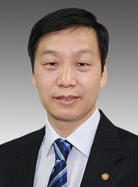

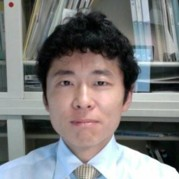
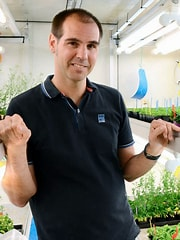
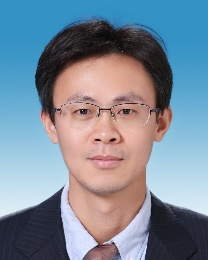
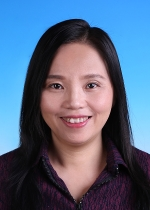
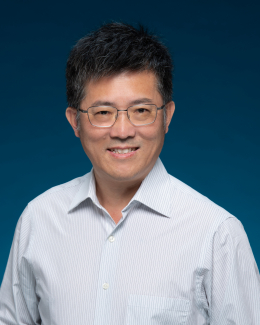
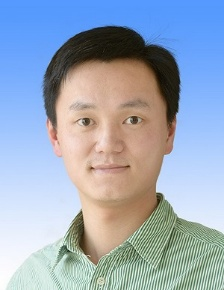
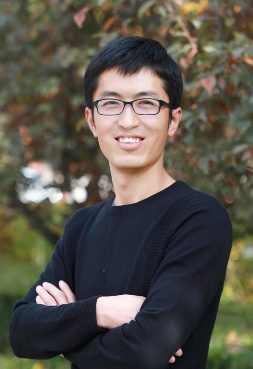
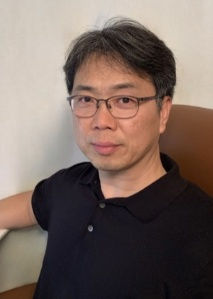
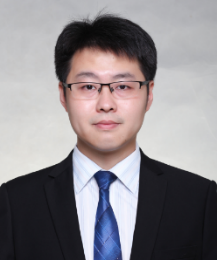
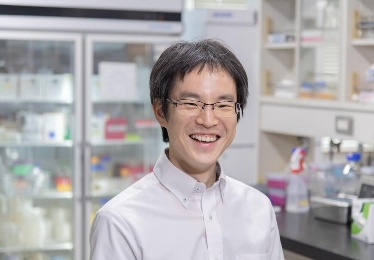

 loading......
loading......